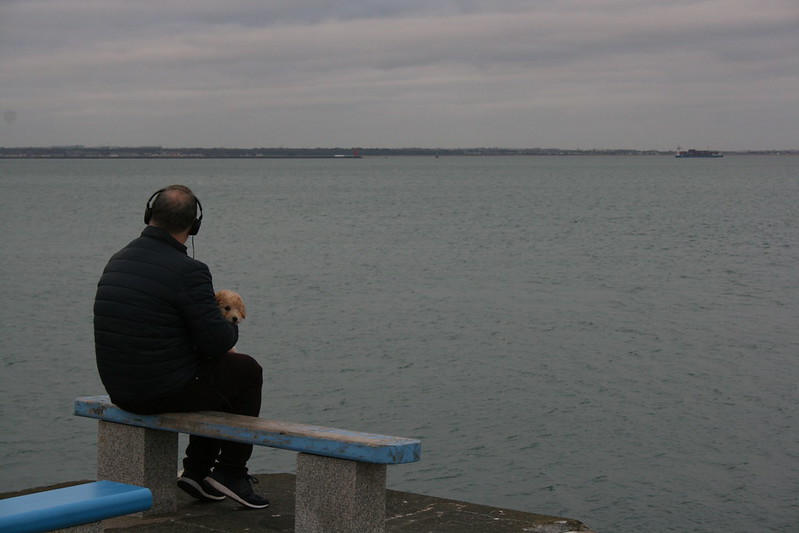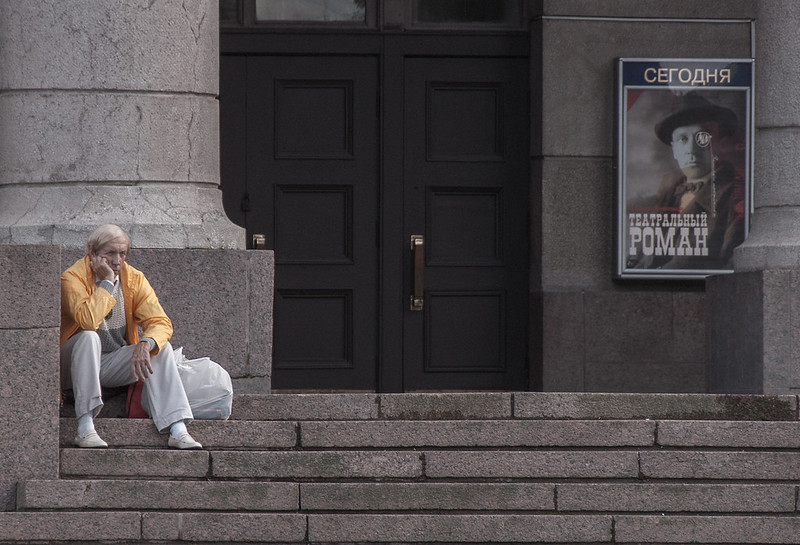God and Being Alone
Finding God When No One Can Understand You
Dr. Leslie A. Muray
Religion and Solitariness"Religion is what the individual does with his own solitariness. It runs through three stages, if it evolves to its final satisfaction. It is the transition from God the void to God the enemy, and from God the enemy to God the companion.
Thus religion is solitariness; and if you are never solitary, you are never religious. Collective enthusiasms, revivals, institutions, churches, rituals, bibles, codes of behaviour, are the trappings of religion, its passing forms. They may be useful, or harmful; they may be authoritatively ordained, or merely temporary expedients. But the end of religion is beyond all this. Accordingly, what should emerge from religion is individual worth of character." Alfred North Whitehead, Religion in the Making |
About one and a half months of my life are missing from my memory. I vaguely remember getting into a hospital bed in Budapest, Hungary and telling one of my cousins I wanted to go home. The next thing I remember is talking (I was writing) to Rich Sullivan, the Chief Financial Officer of Curry College where I teach, more than a month after my initial hospitalization.
I had been sick during Christmas break—COPD. My doctor prescribed both antibiotics and steroids. He cleared me to do my four month Fulbright scholarship in my native Budapest, Hungary. From the moment I arrived, I had difficulty breathing and had difficulty doing everyday things like walking. I had a heart attack and respiratory failure, I found out later. I was in a coma in a Hungarian hospital for about a month. I acquired a huge gash that started as a bed sore. My friend, colleague, alter ego, and contact person, Rob Smid, worked strenuously to have me AirEvaced back to Boston—in an airplane for three passengers. We made seven stops, I am told. I spent around ten days at St. Elizabeth’s Hospital, Brighton (a part of Boston near Boston College). When I was well enough, I was transferred to New England Mt. Sinai Hospital in suburban Stoughton. I was in Intensive Care for two weeks, then on to a less intense level of care. There were tubes protruding from what seemed like every available place in my body, an IV, two catheters, a tracheotomy on account of which I could not talk; 100% of my breathing was done by a ventilator. I was confined to bed. Additionally, I was fed through a feeding tube, no solid food intake for two months. I tried talking but the people with whom I was attempting to talk could not read my lips no matter how hard we all tried. I attempted to write but they could not read my handwriting! I was quite touched by the steady stream of visitors who came to see me, especially students. Nevertheless, being unable to communicate, frustrated by the sometimes seemingly interminable wait for my call button to be answered, I felt isolated, confined by and to the “sounds of silence.” Where was God in all of this? To deal with that question, let me mention three of the ways in which I experience God and God’s presence: 1. in nature; 2. in the love and care of other people; and 3. in moments of pain and isolation. Yes, I felt very isolated, in nearly constant pain, experiencing anxiety in ways that were out of character. Yet, even in my worst moments there would come a time, within the pain and isolation, during which I experienced a sense of peace, a tranquility that permeated my very being and that of the world around me, comfort in the best sense of the word from the Latin, “with strength,” soothing yet strengthening. Without being Pollyannaish or pretending that my pain and isolation had gone away, I experienced a reassurance that things would be alright even though the contents of that sense of OKness were not clear. I was filled with hope—my present state was no longer a vehicle for self-preoccupation nor did it have a sense of finality. Thus, for me experientially, God is present in the deepest recesses of the heart, in the pain, in our feeling cut off from relationships. God speaks in and through the silence-The silence of God! In the 1970s, German theologian Jürgen Moltmann, who according to one poll at the time, was the most influential theologian in the world, had a book published with the title The Crucified God. Moltmann described the cross not in terms of sacrifice, but as the paradigmatic event of suffering, isolation, rejection, dereliction, and abandonment. This includes a sense of abandonment by God, best expressed by Jesus' cry, "My God, my God, why have you forsaken me?” Although there is a sense of abandonment, forsakenness, and isolation, Moltmann, relying on Hegel’s Meditations on Good Friday, contends that God is closest to us precisely in those moments of abandonment and isolation. Moltmann is close to process thought in focusing on the suffering God. His theology, as is the case with process thought, espouses a form of panentheism, the notion that God is in all things and all things are in God. She/he experiences all experiences human and non-human whether they be joyful or sorrowful. It is very difficult to have a sense of God’s presence while we experience isolation and abandonment. Yet it is precisely in those moments of abandonment and isolation that God is most present, speaking in and through the silence: “Emmanuel, God with us!” God is closer to us than we are to ourselves and it is this closeness that empowers us to say, to allude to a statement by Stephen Rockefeller, the “Great Yes” to life. |







